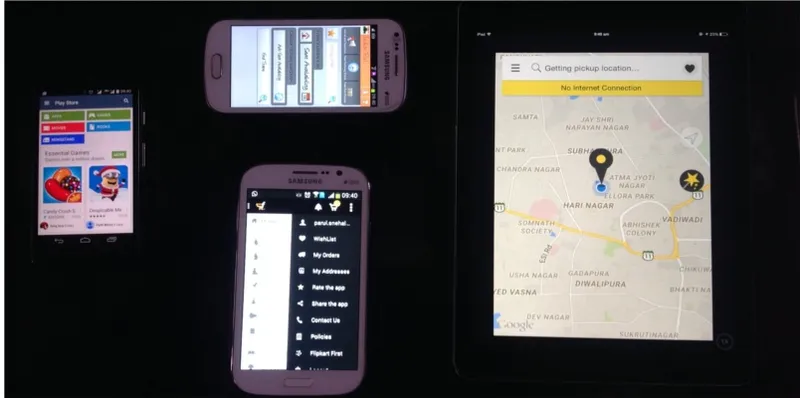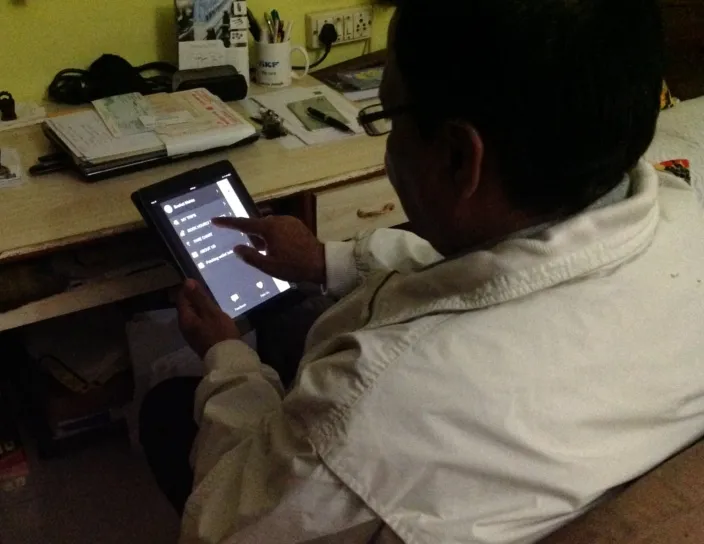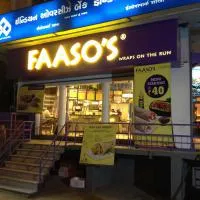When startups in India became truly mainstream
I live in Dharamsala, Himachal Pradesh and frequent Bangalore or any of the metros every month. Two places at two different ends of the spectrum in terms of culture, climate, technology penetration and probably everything else. But a short visit back home in Vadodara at the onset of 2015 got me thinking about the impact startups have started making.
We, at YourStory, started writing about startups back in 2008 when it wasn't even a word in India. Likes of customer facing companies like Flipkart, redBus, Ola, Faaso's hardly had a recall in mainstream. But after close to seven years, it has become easier to explain what a startup is and why do people start up. Here are three glaring examples that show that startups have truly become mainstream and how your mom or aunt's friend probably know about it when you speak:

1) Mom browsing Flipkart for purses and understanding the Flipkart model
My mom and aunt can now spell Flipkart. Their friends had bought a few items like purses with the help of their kids and hence, they also wanted to do it now. The confidence to make an account and buy is still lacking, and so is the capacity to grab concepts like a Play Store but a small nudge and they'd become 'internet buyers'.
I helped them download the app and now they intuitively scan through products and have placed their first order via COD. But how does all this work? How can they afford to sell at such low rates?
Here's the explanation that hit home a point-
Imagine you like making cushions and want to sell them. What would you do? Make them and sell the cushions in your locality. For this, you'd need to rent a shop, pay the bills, hire employees and all this takes money. Now imagine your shop goes online! All of your cushions are on the net, anyone sitting in Bangalore or anywhere else can have a look and order one.
When anyone orders, you get a mail telling you about the customer. All you need to do is pack and ship! The person who has ordered, pays Flipkart and Flipkart pays you after taking a small cut.
Doesn't this bring down costs? Wouldn't you be able to reach more customers and price your products at a lower rate?
Well, that should do it (concepts of scale, data, advertising can come in later)
2) Dad ordering a TaxiForSure at 3 am
During my visit, I was supposed to reach the railway station at 3 am. Usually, my dad comes to pick me up but this time, I get a message giving me the driver details! TaxiForSure with it's flat INR 50 campaign had done the trick.

Autos charge a bomb at nights but this taxi service is doing it at INR 50. This is all my dad had to know. Billboards, TV ads, and a reccomendation is what it took to build the confidence. My father is a regular TaxiForSure user and recommends them to every other person. But he is baffled about how do they manage it?
The question that doesn't have an answer-
There are two kinds of people- one who can fathom the power of scale and understand the risk investors take. And there is another section for whom the entire space of scale and technology is a bit too grey. I try to explain with the power of brand-
We have been writing about these companies when no one knew them. But there are very few people like us. This has never happened before in India. Young people daring to start up something small and trying to make it big. 1000 start and only 1 succeeds but they take the risk. And if the risk pays off, the returns are huge! This TaxiForSure, Ola and others are such companies.
Starting from Bangalore, Mumbai, etc, they have now grown and are also available in places like Vadodara. There are investors who believe in them and give them money to grow. (Not as goodwill). They ask this company to get 2 lakh users in Vadodara and if they do it, they'll get more money to go in Rajkot. Get users and build a brand, that is the key.

3) Faaso's at my doorstepEveryone is used to getting flyers from Dominos. But Faaso's is a QSR chain (quick service resturant) that is backed by Sequoia and started from Pune but has now opened up in multiple cities across India. Their bet was using technology in the QSR segment and scale rapidly.
They have been able to do that by giving capabilities like ordering via a tweet and automated systems for delivery but when it comes to real India, everyone has to take an offline play.
Faaso's now has a street army that is going from door to door to explain who they are! Yes, my grandparents were listening to the guy who came at our doorstep to explain about Faaso's and the world of wraps. It has been a long ride for Faaso's but it is heartening to see them surviving and trying out all means to grow.
Some key points that emerge or are implications of the above post:
- This post has been purely written from the point of view that startups have truly become mainstream in India and it a very heartening thing for all startup enthusiasts.
- 2014 has truly been mobile and people are coming online but lot needs to be done in terms of education. How can concepts like a PlayStore be made easier to understand? (Mobile phone shops charge to download 'free apps') How can people be made more comfortable on the internet?
- Offline can not be neglected atleast for the next decade. Startups will have to do TV ads, they will have to hand out flyers, they will have to do events. Period.







